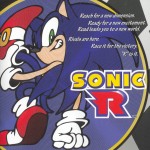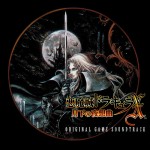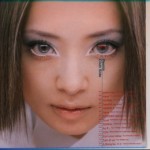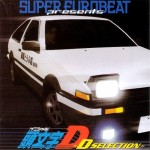Everybody’s Super Sonic Racing
My taste in music has rarely been mainstream. That’s not to say I don’t appreciate what’s on the radio from time to time. However, the advent of internet radio, and Napster, forever changed how I would not only listen to music but what I listened to. Tastes in music come and go. Trends and fads are as prevalent in music as they are in any other hobby. But I have held fast to a handful of non-mainstream flavors: video game soundtracks, Jpop/anime, and Super Eurobeat.
Video Games
Back in the NES days, since my parents had a mono output tape recorder I would audio record my favorite video game music to listen to when I was going to sleep. Ninja Gaiden, Castlevania, Mega Man are the heavy hitters that I can recall. Moving into the SNES and SEGA Genesis days, when sound chips could crank out even better sounds I would directly input the audio through the sound system and tape record that way (Symphony of the Night, X-men vs Street Fighter being biggies). These were games I would play in and out for weeks or months, ingraining every aspect of them into me.
Despite their sometimes premium pricing (Squaresoft RPG soundtracks with 3-4 discs would go for upwards of $40), they were worth it to me. Also, there was no other way to acquire them since this was the late 90s and the internet was not even close to giving us what would be the glory of mp3s. Trekking it to Mitsuwa (Yaohan) in Edgwater, NJ was our only real source… until we discovered the minibus to Chinatown, and Mott Street.
Some 16-bit systems came with CD add-ons that gave us the first ever taste of digital quality soundtracks. The SEGA CD and Turbo CD/Duo really opened a new universe of how beautiful game music could sound, far from the bleeps and bloops and faux digitial voices of their predecessors. The 32-bit systems would forever change the game as no one looked back after that for audio format.
This is also when I started to really take note of the composers when I would buy the game soundtrack or see their name listed in the game credits. Before CD quality I knew of two composers that were the most groundbreaking: Yuzo Koshiro (Streets of Rage/Actraiser) and Nobuo Uematsu (Final Fantasy). In the ensuing years I have added a lot more composers to memory: Noriyuki Iwadare (Lunar, Grandia), Noriyuki Asakura (Tenchu), Hitoshi Sakimoto (Vagrant Story/Final Fantasty Tactics), Michiru Yamane (Castlevania), Richard Jacques (Sonic R), Spencer Nielsen (Sonic CD), Jake Kaufman (Double Dragon Neon). Many of these composers have their own following and now appear at concerts or fan conventions and perform. Now, you have fansites dedicated to their own compositions based on these composers, like Overclock Remix.
The next big change to game music was the advent of Beatmania, or Bemani for short. Konami blew the lid off my world with a suite of musical-themed games with Dance Dance Revolution being the largest by far. Not only did you have to “dance” by syncing your jumps on four directional arrows on a pad but the music you grooved to was any combination of disco, pop, rock, euro pop, jpop, electronica, house, ska, etc. This also introduced me to European cover artists Joga, Captain Jack, and Bus Stop. Between 1999 and 2005 this was in heavy rotation with me. I have acquired soundtracks to DDR 2nd through MAX2, as well as a few spinoffs under the same label.
Currently, I possess upwards to 40 soundtracks from video games. Most of them are only to add to my collection, but a few get listened to at least a few times a year. Short of bankruptcy I’ll never get rid of them. Of the three classes of music I specified here, this is the one that I listen to the most frequently.
Jpop/Anime
It all began in 1998, when I received a mail order catalog from JVC. At the time I most likely ordered their OVA (original video animation) Macross Plus since of the four parts available I could only get a few from the local video store. In the catalog there were selections for the soundtracks to the series, and I selected one to order for probably $30 and change. After hearing Sharon Apple’s voice on loop for awhile I knew this was going to be something big. And the name Yoko Kanno would become ubiquitous to anime compositions.
I combine these two because I would not have discovered one without other. Senior year of high school I discovered anime. Within a year I was VHS recording my favorite opening and ending theme songs. Around 1999, two things happened: Napster and reasonably priced PC CD burners. The former provided me an internet source to download songs from the anime series I liked (this includes other websites that would also allow this, like Phoenixchan’s MP3 dump), and after I would download these mp3s my friend would burn them to CD (WAV format only).
Now I had the ability to listen to my favorite anime series songs at work and, if I felt so inclinded, in my Sony CD Walkman. Slayers, Cat Girl Nuku Nuku, Bakuretsu Hunters, Macross Plus and Ranma 1/2 to name a few. As time went on I came to learn that a lot of the singers for these songs were big stars in Japan; i.e. they were not singing exclusively for animations but had their own careers outside of it. This is when I began to slowly search for music by artist rather than title. Of the dozens I heard over the years (Namie Amuro, Porno Graffiti, Utada Hikaru), the ones that stuck with me most are Two-Mix, move, and Ayumi Hamasaki.
Ayumi, dubbed Ayu with her brand, who was/is the biggest pop music star in Japan. I liked most of her early works until the mid 2000s, but I always purchased her ayu-mi-x albums which were a collection of remixed or resampled songs by DJs, non-stop megamixes (which I love), or acapella. She was a CD generating machine, and I still listen to these mix albums frequently.
Two-Mix are a duo of techno/electronica dance songmakers with female vocals only. Next to Ayumi I have the most albums from them. I even dropped $80 on a double-album/VHS music video combo. They also have a lot of “best of” and regrouped albums but I stopped paying attention to them in 2001 with their album Gravity Zero. I did collect all their older stuff way back to 1996, however.
Lastly, move most exemplified my Jpop/anime hybrid. They have done a half dozen open/close songs for one of my favorite anime, Initial D. Plus, I own a half dozen of their albums and remixes. I even had the pleasure of having them sign one of their albums (Tropican Trops) when they were guests at an anime con back in 2006. They mix their styles up quite often, but usually fall within the rap-rock and dance ranges.
Super Eurobeat
The most recent, and unexpected, of my preferences. Eurobeat has been around since the early 90s (known then also as Italio Disco), but I only knew of its existence when it was the primary music selection for the Initial D series, which added the Super prefix to it. The difference between the old and new types was the beats per minute. The minimum for most every SEB song was 120 BPM, though few ventured above 150. It’s easily categorized as high-energy dance with ridiculous lyrics composed primarily by Italian artists that use a host of monikers to make it look like there were more singers than reality would dictate. The most popular and influential of these artists is Dave Rodgers who introduced a lot of other singers into the niche.
A single Japanese label, Avex Trax, is responsible for the juggernaut of SEB music that is sold around the world. They also either formerly or currently own the biggest names in the music industry for Japan in particular, and Asia in general.
SEB is not limited to Initial D, but it got its most public exposure through it. SEB encompasses a wide range of subtypes including a 200+ megamix album. I’m not sure who thought downhill street racing and sugar-infused pop music would be such a good combination, but it worked. When Tokyo Pop first decided to localize Initial D for the states, they decided to replace the soundtrack with American rock tunes and was immediately slammed by their fanbase. In short order the SEB soundtrack was included and all was right with the world.
I cannot separate the music from the series. Even today, if I’m drowsy while driving I pop in a SEB album and it immediately energizes me. Many of my peers know a majority of the most famous songs (Burning Desire, Space Boy, Night of Fire), and it also made its inclusion in DDR: Disney’s Rave. (import only). It truly is a category that appeals to my overall music tastes, and has a edge of ridiculousness that makes it stand out.




Share Your Thoughts